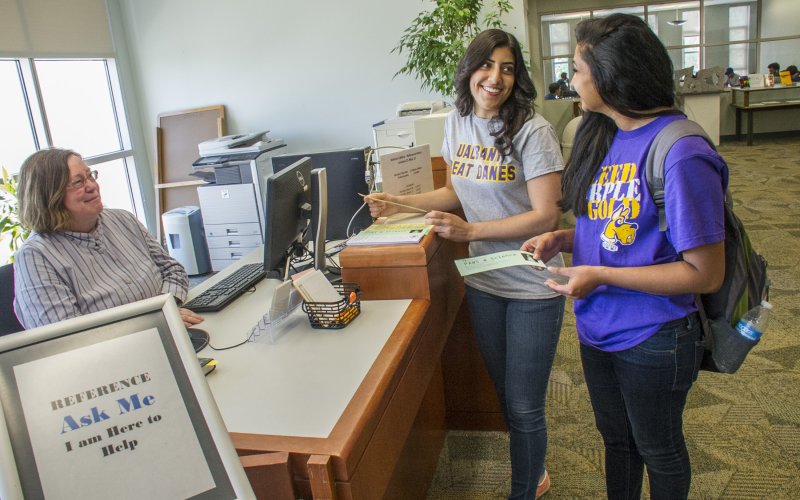Libraries Celebrate Digital Learning with ‘Love Data Week’

ALBANY, N.Y. (Feb. 9, 2023) — From predicting the weather with machine learning to exploring the world of data visualizations, University Libraries at UAlbany has a host of activities scheduled to celebrate “Love Data Week” from Feb. 13-17.
"With the challenges and promise of today's rapidly evolving research landscape, the Libraries are working closely with campus partners to provide services, training and expertise to meet UAlbany’s needs,” said Emily Kilcer, Scholarly Communication Librarian who helped put the Libraries’ programming together.
“Love Data Week” at UAlbany was developed by the Data Services Team, a partnership of experts from the Libraries, Information Technology Services, Data Management and Analytics Center and the Division of Research. The series of workshops on data management best practices and data visualization is part of an international celebration of the power of data.
Inspired by the Indiana University-Purdue University Indianapolis University Library’s first “Love Your Data” week in 2016, “Love Data Week” has become an annual event celebrated by institutions throughout the United States and around the world. Held around Valentine’s Day, “Love Data Week” activities are designed to highlight the importance of data science and management, and the myriad ways in which data can serve to transform society.
“Data is a valuable research asset, and we’re committed to educating the UAlbany community about and supporting researcher practices to better manage, store and share their data for the largest possible benefit,” continued Kilcer.
The University Libraries has four programs scheduled for the week, beginning on Tuesday. The programs run roughly an hour and are accessed online.
The events include:
- Research Data Management: Tools and Tips: Tuesday, noon to 1 p.m. Whether you are working with images, text, numerical measurements or survey results, your research can benefit from sound research data management practices and plans. Speakers will introduce research data management best practices, identify the components of a good data management plan and share local resources to help you meet your research data management needs.
- Introduction to Tableau for Data Visualizations: Wednesday, Fnoon to 1 p.m. Using Tableau Public, the free version of Tableau, speakers will go over the user-friendly data analytics and visualization program. If you're looking for a way to visualize data without learning to code, Tableau may be right for you. Speakers start with the basics of importing data, making basic charts, maps, dashboards and more.
- Predicting the Weather with Machine Learning: Wednesday, 2-3 p.m. In this Python lesson, speakers will address how to use a data set of recorded weather variables to help predict future climate conditions by making a machine learning model.
- Introduction to Voyant Tools for Text Analysis: Thursday, noon to 1 p.m.: Voyant Tools is a free, web-based program for analyzing and visualizing text. It can be used to analyze the frequency of words in a text, the context of text surrounding a keyword, keywords and terms that occur in close proximity, phrases and correlations among other tools. Speakers will address how Voyant can be utilized to create popular visualizations such as word clouds, bubble lines, scatterplots, trend line graphs and more.
“While we are focusing attention on data next week, the Libraries work to advocate for and support a more open, equitable, sustainable research environment more broadly, throughout the whole research lifecycle,” said Kilcer. “From copyright and author rights training and publisher agreements to managing the University’s open access repository, Scholars Archive and Open Access Policy implementation, the Libraries are committed to preserving and sharing UAlbany's valuable scholarship to the widest possible impact.”




